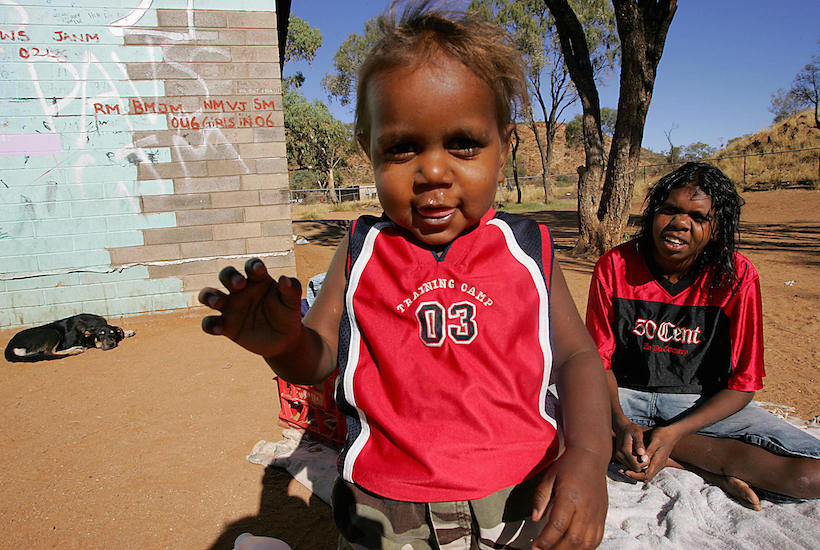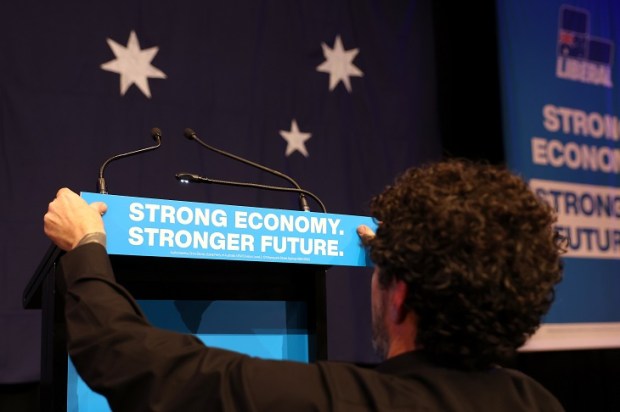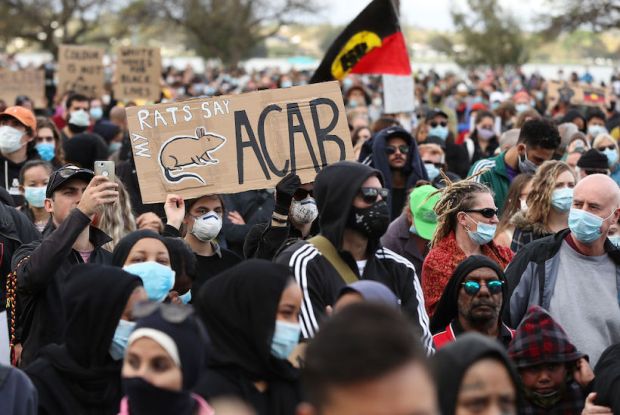Much has been written about the demand for an Indigenous voice. While such an idea is necessarily political, I wish to discuss it from a non-political perspective here. I believe the vast majority of Australians want to see those Indigenous Australians who are suffering have the same opportunities that you and I take for granted. Therefore, the issue of an Indigenous voice needs to be considered carefully. It seems to be sucking up a lot of energy — no surprises there — and I question if that energy could be better spent in more effective ways to help Indigenous people; getting adults into meaningful jobs and ensuring kids receive a world-class education, especially in remote parts of Australia.
It’s not so much having a voice for Indigenous Australians that I oppose, but rather the premises on which the request for a voice is built. If the assumptions beneath any argument or project are faulty, then anything following from them will also be flawed. However, given that there are some very capable and competent Indigenous leaders weighing into this debate (leaders whom I may not always agree with, but respect nonetheless), it is important to examine the notion of a voice carefully.
First, the belief that it is useful to think about Indigenous Australians in a collective sense when deciding how best to address the serious problems that affect only a subset of those who identify as Indigenous is untenable. This premise, I believe, arises from the faulty assumption that Indigenous Australians are a homogenous group of people having vastly different needs to non-Indigenous Australians — needs which non-Indigenous Australians cannot understand. Working off this assumption has allowed some people to build nice little empires for themselves where they can be ‘experts’ and ‘consultants’ or even professional activists.
I have not seen evidence that the needs of Indigenous people are different from those of non-Indigenous people. Let’s not forget that Indigenous people are people first and Indigenous second. Indigenous Australians may face certain problems that non-Indigenous Australians are less likely to face, but we all have the same basic needs, which if addressed, solve most problems. All Australians have the need for fresh food, clean water, safe living environments, connection with others, access to modern services and purpose in their lives. Many Indigenous people already have these and are thriving. The obvious question in all of this is how is it that these people have been able to achieve what they have today without the proposed voice? Perhaps we should be trying to understand how they have succeeded in order to help the most disadvantaged Indigenous people?
Another premise driving the call for an Indigenous voice is the perception that Indigenous people currently lack any voice, despite the many Indigenous-specific bodies and organisations, specialised services, and highly intelligent and capable Indigenous politicians and leaders. Accompanying this perception is the equally questionable assumption that there exists a voice for non-Indigenous Australians, but this voice is not adequate for Indigenous people — or not ‘culturally appropriate’ as the ‘experts’ and ‘consultants’ would tell us.
Certainly, there are situations where a program or service needs to have an Indigenous focus to address the needs of those people who are less confident and less familiar with mainstream services. Such Indigenous focus is best provided by local Indigenous people having the appropriate skills. Where differences may exist, they should be considered, but they should not become the pivotal point on which all decisions are made regarding how best to assist Aboriginal people. When seeking to understand our differences — cultural or otherwise — this should be done only in the context of a better understanding of the human commonalities. That is, a good basis for understanding Indigenous people is founded upon a good understanding of people first and foremost.
To justify the need for a voice, some proponents will declare that Indigenous Australians are over-incarcerated, have shortened life expectancy, are more likely to be homeless, and have higher suicide rates. These are serious matters which require urgent attention. But there has been no plan offered that shows how the proposed voice can address these problems. I would favour an Indigenous voice if it was accompanied with a plan to explain how those Indigenous people who live in appalling conditions where dysfunction and instability are commonplace can have what you, I, and the advocates of the voice take for granted — healthy lifestyles, safety, and easy access to modern services.
Ultimately, I believe a solution to the problems too many Indigenous people suffer from will come by eliminating the us-them mentality. We must adopt the approach of former Indigenous politician, Alison Anderson: “I see people. Not categories, divisions, or races.” A voice is likely to reinforce the pernicious us-them mentality.
The call for an Indigenous voice is edging close to separate development – and separatism. Again, Alison has wisely stated what many of us already know: “The idea that separate development was the answer provided hope for many and jobs for an increasingly powerful few. However, it has failed.”
There are many questions to be answered regarding a voice, and they stem from the recognition that it is foolish to think of Indigenous Australians collectively, to see them more in terms of group identity rather than as individuals. Questions include: which Indigenous people want the proposed voice?; who do they want to be this voice?; how will conflicting ideas be addressed?; and what will be the main priorities? This last question is most important – will priorities be changing the date of Australia Day celebrations, declaring another natural land formation as holy and sacred, or will it be addressing the problems of health, unemployment, and education.
Let’s listen to those advocating for a voice. Let’s debate respectfully. But let’s not forget that while doing this, action can be taken today to help those Indigenous people who are suffering the most.
Got something to add? Join the discussion and comment below.
Got something to add? Join the discussion and comment below.
Get 10 issues for just $10
Subscribe to The Spectator Australia today for the next 10 magazine issues, plus full online access, for just $10.


























Comments
Don't miss out
Join the conversation with other Spectator Australia readers. Subscribe to leave a comment.
SUBSCRIBEAlready a subscriber? Log in